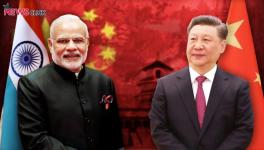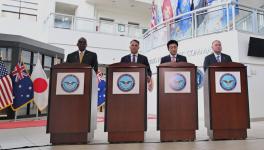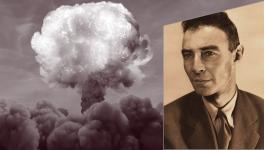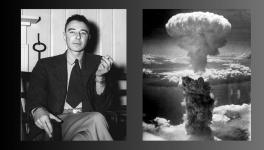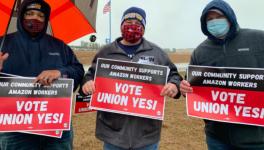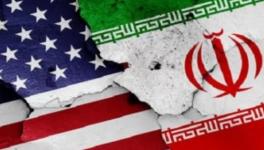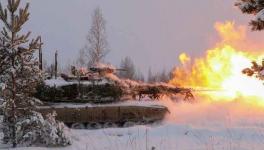Film director Stone dismisses U.S. A-bomb claim as ‘tremendous lie’
HIROSHIMA – American film director Oliver Stone has challenged the commonly held U.S. perception that the 1945 atomic bombing of Japan ended World War II — saving a huge number of American lives in the process — as “a tremendous lie” during his visit to Hiroshima through Wednesday.
“It’s easy to look at the issue simply that Americans dropped the bomb to end World War II because Japanese militarists would not give up . . . (but) that would be the surface explanation,” Stone, 66, said as part of his Japan trip to attend a series of peace events commemorating the 68th anniversary of the U.S. atomic bombings of Hiroshima and Nagasaki.
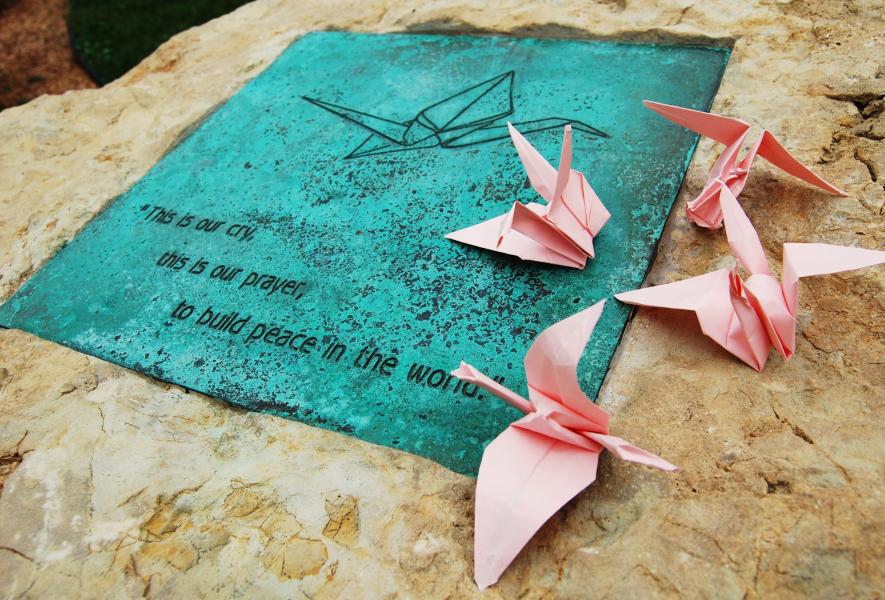
“But those people who looked deeper will find out there is a much more cynical explanation,” he said, noting the Soviet Union’s war on Japan, begun on Aug. 9, was “a strong factor” behind Tokyo’s surrender six days later.
“The United States was able to get away with it because we were the winners. But as a result, we lost our moral compass,” he said. “We were able to use nuclear threats against Vietnam, against the Soviet Union, against whoever we had to get our win.”
Stone, who went to the Vietnam War as “a young man, as a believer I was fighting communism,” said that for decades he used to take as a given the justification for the atomic bombings.
But his view changed after he started research with U.S. historian Peter Kuznick, with whom he produced a 10-part documentary series and companion book, “The Untold History of the United States.”
Coming to Hiroshima for the first time, Stone visited the Hiroshima Peace Memorial Museum, met atomic bomb survivors and attended the city’s memorial ceremony held Tuesday morning near ground zero at exactly at the same moment when the atomic bomb code-named Little Boy was dropped by a U.S. B-29 bomber 68 years ago.
The blast, fire and radiation from the world’s first atomic bombing devastated the city, with the temperature on the ground at the hypocenter rising as high as 3,000 to 4,000 degrees.
Referring to the U.S. wars in Vietnam, Iraq and Afghanistan as behaviors to “trash” those countries, he said the origins of “American empire” come from the atomic bombing and criticized his country for having “no sense of history.”
“We never think about the implications of what we do,” he said, noting the importance of remembering the lessons of history to prevent the recurrence of tragedy.
“When you come to Hiroshima, if you can remember or try to remember, that’s the first step in keeping your humanity,” he said. “The battle of memory against forgetting is the battle of civilization against inhumanity.”
Kuznick, who is traveling with Stone, said he greatly admires the hibakusha, as “they have turned their anger, bitterness and hatefulness into something positive” and “led the fighting against nuclear weapons.”
Kuznick described as a “fundamental contradiction” the fact that Japan has been opposed to atomic weapons while relying on the U.S. nuclear umbrella.
Disclaimer: The views expressed here are the author's personal views, and do not necessarily represent the views of Newsclick
Get the latest reports & analysis with people's perspective on Protests, movements & deep analytical videos, discussions of the current affairs in your Telegram app. Subscribe to NewsClick's Telegram channel & get Real-Time updates on stories, as they get published on our website.









